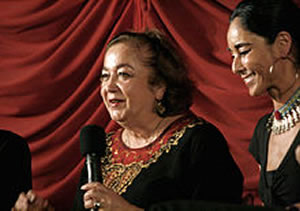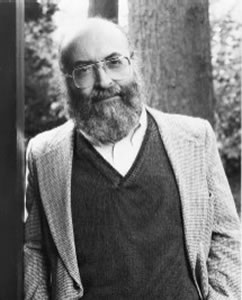De Iraanse schrijfster Shahrnush Parsipur werd geboren op 17 februari 1946 in Teheran. Zie ook mijn blog van 17 februari 2008 en ook mijn blog van 17 februari 2009 en ook mijn blog van 17 februari 2010.
Uit: The Story of the Men of Sialk Hills (Vertaald door Steve MacDowell en Afshin Nassiri)
„This was very strange. And they wanted to discuss this strange event with each other, but the people in the line started protesting and asked them to go stand at the end of the line. Hence the tar player and his fiancée started walking toward the end of the line. That is how they followed along the line and passed a few streets and corners. Then they walked along the main highway and reached Baghdad. At that time Baghdad was more or less like the Sialk Hills, hazy and full of dust, but the sound of music could be heard from a small deli around the corner. At this moment the tar player’s fiancée became angry and told him she had always felt that his love for her had never been real and that he only wanted to marry her because of his need for a servant. Otherwise, why would he make her borrow her own mother’s wedding ring? The tar player swore that it was not like that at all, that he sincerely loved her, and that he wanted to marry her. That is how, as they walked with the line, they kept arguing. It was hot, and a swarm of flies were flying around their heads. The man became increasingly irritated and furious. That was why when they got to Damascus he screamed, “What do you want from my life? Do you realize how long we have been arguing?”
At this moment a little event encouraged them to keep to their decision to see the film. That event was a fork in the line.
The man yelled, “You are shameless!”
The girl yelled, “Am I shameless, or are you?”
Without answering her, the man said, “What a slut!”
Red-faced from anger, the girl screamed, “You call me slut?” and she continued to go with the other branch of the line and went away. It was clear that for a long time after this event she did not look back. And in order to prove that he was his own man, he continued to go with the main branch of the line. After a while he stopped and asked one of the people in the line, “Excuse me, what film are you standing in line for?”
The man in the line said, “I want to see the last film of the great director, Edward Muntz, the director who recently passed away.”

Shahrnush Parsipur (Teheran, 17 februari 1946)


